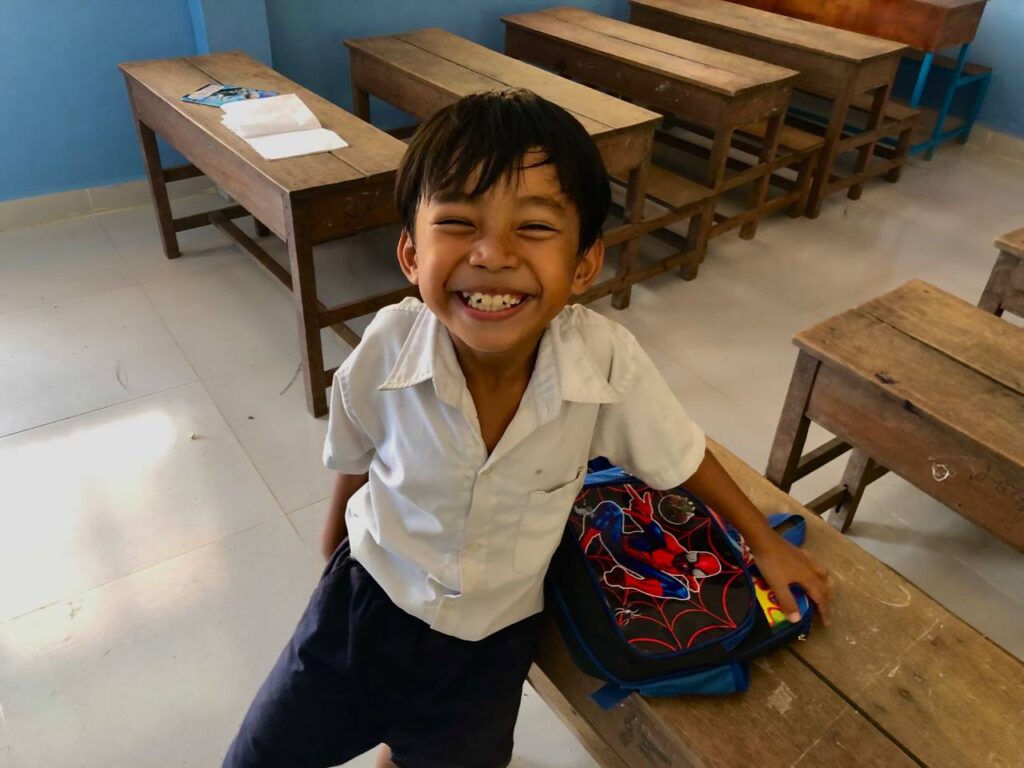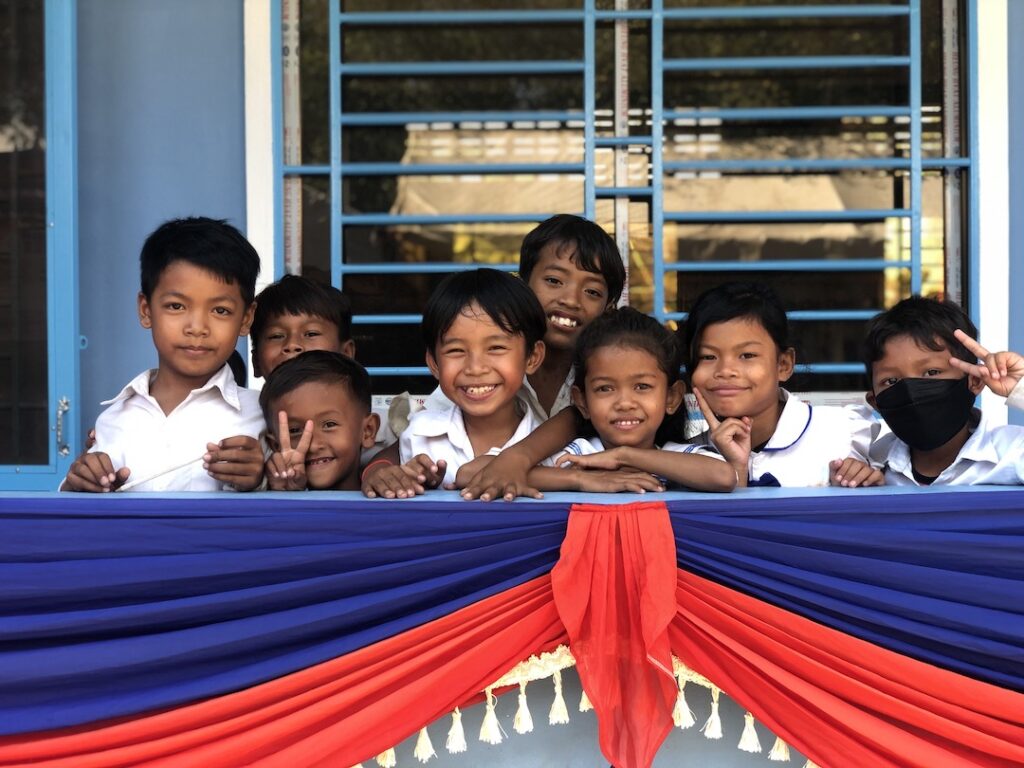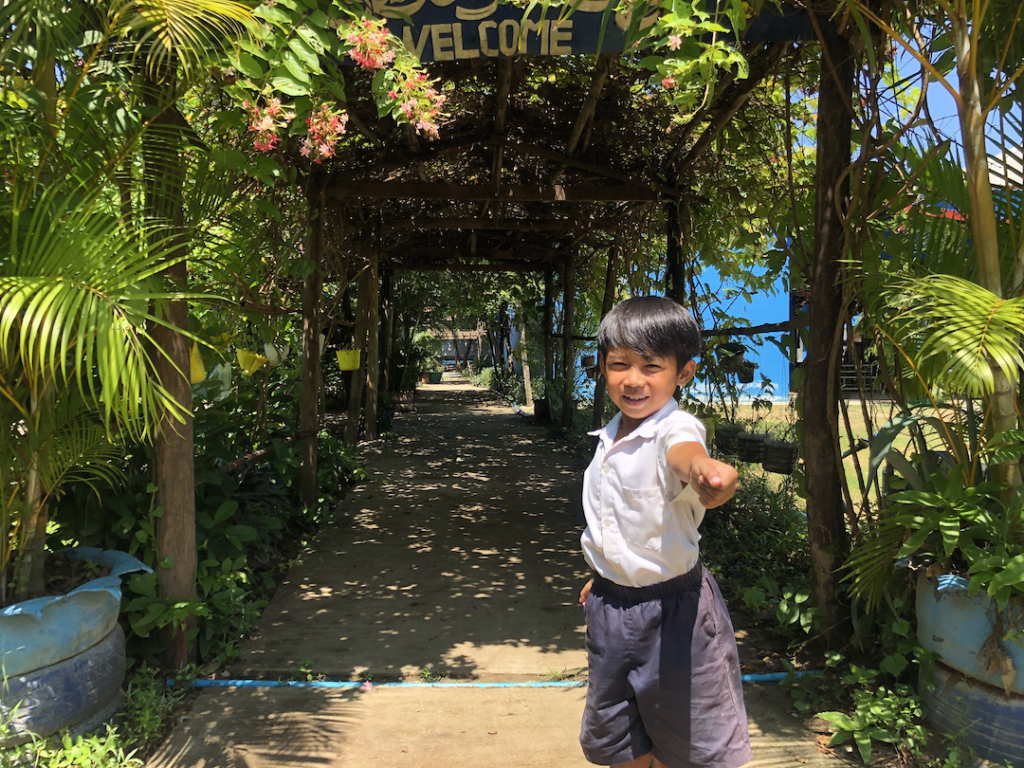Arunny* walks around DT’s main centre with her eight-year-old son, Ponleak*, on the day of the Lifelong Learning Center inauguration. She is quite comfortable on the premises as they are familiar to her. A former Non-Formal Education (NFE) student herself, she holds the program in high regard and has her two sons attending in Grade 6 and Grade 1.
Ponleak is in Grade 1 of NFE, his first year of school. He is dressed for the occasion in his new, crisp uniform. He is a typical 8-year-old boy, fidgeting in his seat as his mother speaks, eager to re-join his friends on the playground and in the classroom. For Ponleak, school is one of his favourite parts of the day, which pleases his mother deeply.

Arunny is 32 years old and has been affiliated with Damnok Toek since 2002 when she started the NFE program in Grade 1. Her own family was quite poor and NFE gave her the opportunity to complete her primary school education. Back then, DT’s NFE program ended at Grade 4 after which, she transferred to public school. Although she completed Grades 5 and 6, she struggled with the structure of lessons and the methodology of the teachers.
“At DT, it was very easy for me to learn and study but when I moved to the public school at that time I did not learn as well and I was not improving in my studies,” she reflects.
Arunny’s own experience factored into her decision to send her children to NFE. Her eldest son is in Grade 6 and she recognizes a big change in him since he began studying at DT’s NFE centre. “I notice a big difference between my son and the other children in our village who aren’t in NFE,” Arunny says. “It seems like he learns faster and retains more of the information.”

DT’s NFE program in Poipet only covers primary education through Grade 6. After that, social workers encourage children to continue their secondary education and assist them in the process of integrating back into the public school system. However, it is not always an easy adjustment and for parents like Arunny, the reintegration process can be a cause for concern.
“I do worry that my eldest son, who is graduating Grade 6 this year, will struggle in the same way I did after leaving NFE,” she says. Keeping her eldest son in school was challenging for her family over these past few years and there was a moment when she was unsure if he would be able to finish his primary education. She and her husband both lost their jobs during Covid and her mother suffered an illness that left half her body paralyzed. Arunny’s eldest son put his studies on pause to help the family financially and was tempted to continue working even after schools reopened after the pandemic.
However, children enrolled in NFE at Damnok Toek receive school meals every day and families receive additional assistance in the form of rice and other foodstuffs. It was in large part due to this support that Aruny was able to provide for her family without having to rely on the extra income her son was bringing in. He was able to re-enrol in NFE and is set to graduate this year.
Ponleak listens to his mother speak but at 8 years old, he is still sheltered from the hardships his family has faced and is simply excited about beginning his studies. Arunny is relieved about this. “Even at home, all he wants to do is study,” she says. “I tell all my children that it is much better to stay in school because it will be easier to get a good job in the future if they have an education.”

Ponleak is shy as he speaks of his love of mathematics and his teacher, Moeung Sreypov. “I really like the way she teaches our class,” he says. “She always speaks to us and it is really easy for me to understand her.”
When thinking about the future, Arunny’s only hope is that her children stay in school and get good jobs when they are older. However, Ponleak has a more ambitious goal. “I want to be a policeman so I can protect the country!” he says. “All I have to do is study really hard and I can do it.”
*Names have been changed to protect anonymity